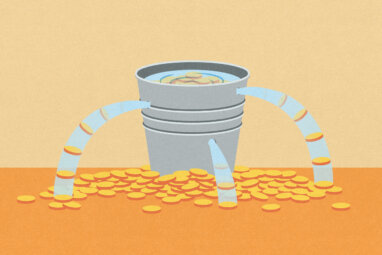The Great Expectations Effect
Asking customers about their wants increases the probability that they will be dissatisfied.
The textbook approach to satisfying customers is simply to give the people what they want — and a little bit more. The trick, then, is to know what it is that customers want. In a forthcoming paper in the Journal of Marketing Research, however, the authors contend that the very act of asking customers about their future expectations changes their experiences for the worse.
In “The Effect of Stating Expectations on Customer Satisfaction and Shopping Experience,” authors Chezy Ofir, a professor at Hebrew University’s Jerusalem School of Business Administration, and Itamar Simonson, Sebastian S. Kresge Professor of Marketing at Stanford University’s Graduate School of Business, describe a series of five field studies. In each, customers entering a supermarket were asked about their expectations of their store visits. Upon leaving the store, the same customers were asked to rate their experiences. The verdict: Customers who shared their expectations with the researchers gave the store lower postshopping satisfaction ratings than did control groups who were not asked anything in advance. It didn’t matter whether expectations were expressed in broad terms of overall satisfaction or in specific terms, such as the anticipated politeness of employees.
The authors then modified their surveys to learn more about why customers became so negative when asked about their expectations. In one subsequent study, separate groups of shoppers entering a supermarket were first asked to rate a highly regarded company, a poorly regarded company or the supermarket itself. After shopping, the group that had been asked to rate the poorly regarded company gave the supermarket higher marks than did the other two groups, suggesting that discussions that preceded their shopping served as a benchmark, even if only a subliminal one, against which they measured their experience.
In another field study, the actual shopping experience was removed from the equation. Two groups were asked to rate a hypothetical, soon-to-open store on the basis of a fictitious newspaper article about it. One group was asked to rate its expectations of the store prior to reading the article; the control group was not asked about its expectations. Those who shared their expectations before reading the article gave the hypothetical store lower evaluations than did the control group.
The expectations effect may not even be limited to retail shopping, Ofir and Simonson point out. In earlier research, they documented that when a computer services company provided customer questionnaires in advance, it resulted in more negative feedback. The same “negativity enhancement” held true for a wide range of the company’s customers, from banks and government agencies to large manufacturers. (See “Asking for Trouble,” MIT Sloan Management Review, fall 2001.)
So does this mean marketers have to become mind readers to learn what customers want without diminishing their subsequent satisfaction? Not necessarily, suggests another field study. Researchers asked one group of incoming customers to rate their past experiences, while a second group was asked to rate their expectations. The ratings were virtually identical, suggesting that customers base their expectations on past experiences. However, when both groups were asked to evaluate their experiences after shopping, the first group offered significantly higher ratings than the second group. This suggests that describing past experiences might evince positive feelings, whereas sharing expectations — even if they are based on the very same past experiences — sensitizes customers toward the negative.
So, the authors suggest, using past experience as a proxy for future expectation may offer a way around the “negativity enhancement” effect. Asking “How fast do you expect to check out?” may be asking for trouble, but “Was your last checkout time satisfactory?” might elicit essentially the same information without setting the vendor up for a fall.
For more information, contact the authors at msofir@pluto.mscc.huji.ac.il or simonson_itamar@gsb.stanford.edu.




